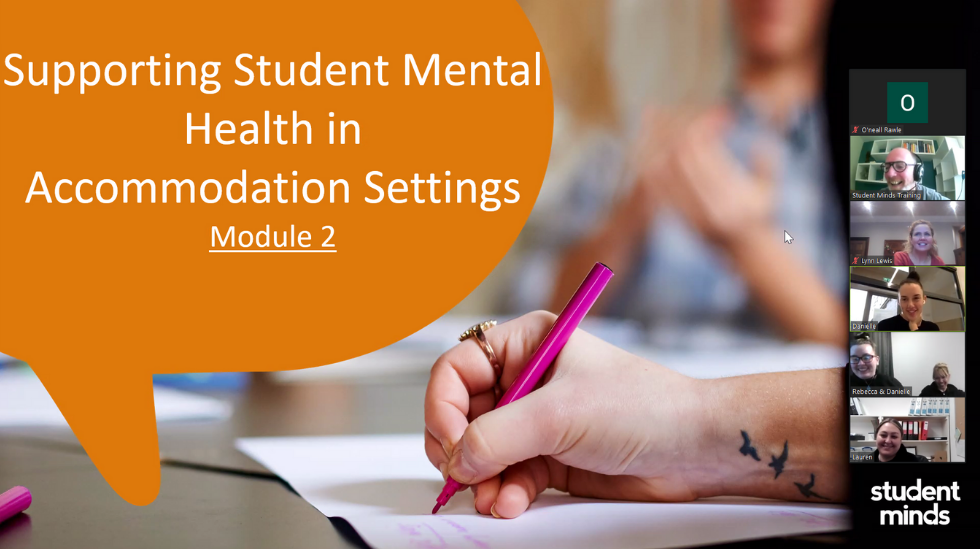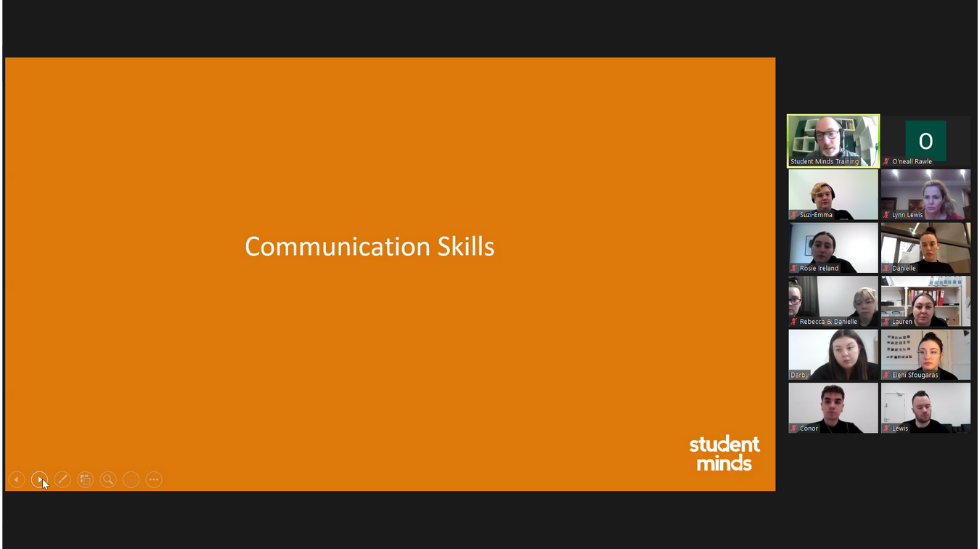There has previously been a stigma around mental health issues and students sometimes felt the need to hide their experiences, however one of the main things that can help, is understanding that asking for help is not a sign of weakness, but a sign of strength.
Although societies understanding of mental health is improving, there is a lot to be done on supporting and improving student mental health at a time where everything is so competitive. That’s why we at CODE have trained staff to offer you mental health support and guidance.
Earlier this month Student Minds delivered a valuable interactive training session to our staff covering areas we know can be difficult for our students and allowed us as staff to be better equipped to understand when someone may be struggling, how to start those difficult conversations and the difference between mental health and wellbeing.
How do you start those difficult conversations?
At CODE there’s some phrasing we use when talking with our students. We use safe and non-triggering phrases rather than talking about specific behaviours, numbers, and dates. we focus on the feelings and psychological aspects of mental health.
In England, 19% of 16–24-year-olds experience a mental health condition (IPPR, 2017, Not by Degrees)
When starting a conversation with a student, there is no ‘one-way’ to do this. The most important aspect is time, we will make the time to talk. We understand that university schedules can be hectic, so we will make time to be there for a chat at a time that suits you. We also understand that sometimes it’s difficult to talk when the focus isn’t just on the conversation, that’s why we have stress balls, teddy bears and many other distractions to make our students feel as comfortable as possible when talking to us. As a team we are trained to be active listeners, we ask the ‘What’ or ‘How’ questions rather than the ‘Why’ questions. Asking “Why” may cause you to feel less understood and more defensive of how you’re doing.
“I found the course really useful. Learning how to initiate conversation without being so direct and with caution was something that I found really beneficial” – Sales Executive
There is no black and white when it comes to mental health. Mental wellbeing can fluctuate and move around a continuum. Wellbeing is defined as having both an awareness of your emotions and the ability to manage and express those feelings in a healthy manner. It includes having both good mental and physical health. More generally, wellbeing is just feeling good about yourself and your life. Mental Health is made up of our emotional, psychological, and social well-being. It affects how we think, feel and act. It also helps determine how we handle stress, relate to others, and make choices.
“Another thing I found really useful was learning the difference between mental health and well-being as two separate concepts, which many people may get confused with and may not know the difference” – Sales Executive
Despite the stigma that may come with mental health, there are still several methods of support that are available to university students and getting in touch with our staff has never been easier. Our staff are on hand 6 days a week to support you the best wat we can and the extra training from Student Mind’s ensure that we are better equipped to do so.
For more information on finding support at University or support with your mental health please visit the following websites:





